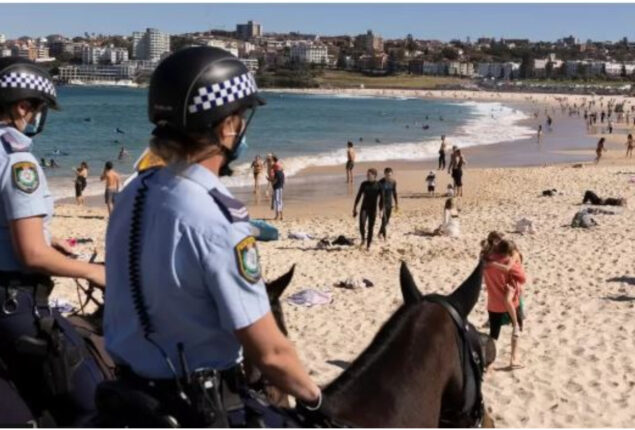The hotline for Russian soldiers to surrender during the Ukraine war
According to the Ukrainian government, up to 100 inquiries a day are...

Tens of thousands of Covid fines are eliminated in New South Wales
In Australia’s most populous state, more than 33,000 Covid fines will be cancelled or paid after a judge ruled that they were unconstitutional.
The pandemic-era fines were contested by an Australian legal advocacy group on the grounds that they were “too imprecise.”
The “fail to comply” fines were imposed for a variety of purported offences, including carpooling and going to a public event.
From $1,000 (£559) to $3,000 (£1,677), they were available.
In the end, government attorneys acknowledged in front of the New South Wales Supreme Court that the fines did not adhere to the law. The Commissioner of Fines Administration removed 31,121 of the 62,138 fines shortly after the ruling was made.
Revenue NSW stated in a statement that throughout the pandemic, residents’ health and safety came first.
The decision “does not mean the offences were not committed,” it was added, even if it was announced that the “fail to comply” fines would be withdrawn.
The Supreme Court challenger, Redfern Legal Centre (RLC), praised Tuesday’s ruling as a “momentous success” in a tweet.
Samantha Lee, a centre attorney, stated before the decision that “this case is about more than simply two people’s fines.”
It’s about the necessity of upholding the law properly, even in the midst of a pandemic.
According to statistics, “the bulk of Covid-19 fines were issued to those residing in low-socioeconomic areas and locations with a substantial proportion of First Nations inhabitants,” the RLC has also claimed that people who live in impoverished neighbourhoods are disproportionately the targets of fines.
Women, children, and persons with disabilities, among others, “took the burden,” according to an independent study of Australia’s response to the COVID-19 pandemic.
Additionally, it was discovered that Australians in the bottom 20% of the socioeconomic scale had a threefold greater risk of dying from COVID-19 than those in the top 20%.
During the epidemic, Australian governments and territories enacted stringent restrictions, including caps on travel and movement outside the house and interstate travel prohibitions.
To stop the virus from spreading, the federal government also imposed a nearly two-year travel ban.
The third Covid-19 Omicron wave is currently affecting New South Wales, which has more than 31,000 cases this week.
The whole verdict will likely be made public at a later time by the court overseeing the case.
Catch all the International News, Breaking News Event and Latest News Updates on The BOL News
Download The BOL News App to get the Daily News Update & Follow us on Google News.